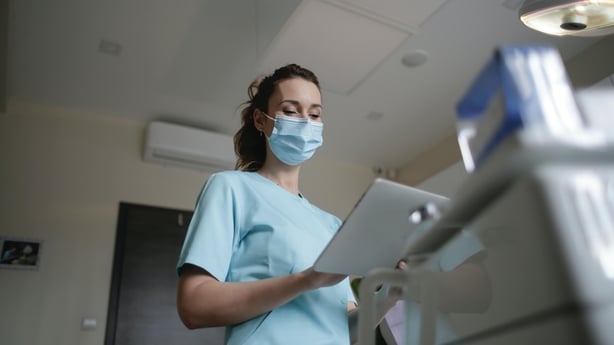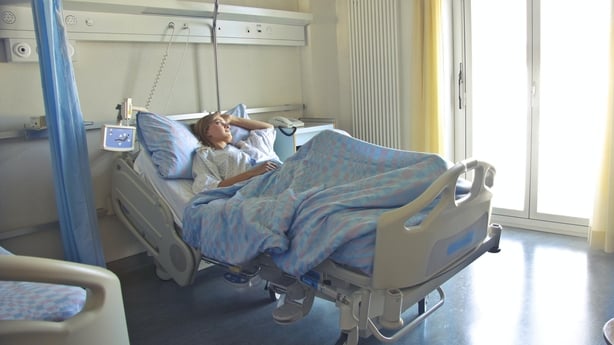Rapid vaccine development, unprecedented international collaboration among research teams and provision of remote care to millions. The Covid-19 pandemic, in many ways, has pushed the accelerate button on medical innovation and brought 'the future of healthcare' to us in the present.
While the technology behind services like tele-doc or online GPs already existed long before the pandemic, the past year has seen mass adoption of remote medical care.
Taking the trends of the past 12 months into account, what does the future of healthcare in Ireland look like in the next 5, 10 and 20 years? Will seeing your GP face-to-face become a thing of the past? What role will wearable technologies like Fitbits and other monitoring devices play in our future health? Will mass data collection and AI enable us to predict and treat illnesses before we even get sick? And ultimately will we live longer, healthier lives?
In the latest episode of RTE's Future Now, Future Next podcast, in association with ESB, we explore these questions and more with our panel of expert contributors.
James Temperton, digital editor of WIRED UK and author of 'The Future of Medicine', says going to see the GP will be a very different experience in the future.
Listen to RTE's Future Now, Future Next podcast here now.
"We are very good at treating disease but we're not especially good at preventing people from getting ill," he says.
"Right now, you go to the doctor when there is something wrong with you. They do some tests, ask you some questions. They're reacting to something going wrong.

"In the very near future, doctors will have a huge amount of information on each and every one of us and that information will stop us from getting ill in the first place."
How you see your GP will also be different, James points out.
"People are used to convenience now," he says.
"Netflix, for example, makes it convenient for you to watch what you want to watch, when you want to watch it, where you want to watch it. You can watch a blockbuster film on your phone on the bus if you want. You don't have to go to a cinema to watch it at a certain time.
"The future of healthcare is much more likely to be like Netflix than going to the cinema."
"So you'll have an online appointment and the stuff you need for the appointment will come to your own home."
Sonia Neary, CEO of Wellola, an Irish digital health software company, agrees. She says while in-person care will never be replaced entirely, we will be seeing less doctors face-to-face in the future.
Firstly, because digital tools will enable us to access medical professionals remotely and secondly, because the future of healthcare will be preventative due to the mass amounts of data being collected on patients, she says.

"Once we get that right in terms of utilising it, the data will ideally help us prevent the development of poor health, it will help us maintain wellness. It will stop us going to the hospital or going to see a GP -- to only do those things when absolutely required."
Dr Andy Franklyn Miller, director of SSC Sports Medicine in Dublin, says patients in the future will have access to cutting edge technology that right now, only exists in labs.
From wearables, to smart body sensors, to in-home blood sample testing, patients will be able to monitor their own health vitals to determine the triggers that lead to things like joint pain or inflammation, he says.
"One of the biggest areas for the future of health is patient-managed continuous monitoring," he says.
"Whether that is continuous glucose monitoring, small blood samples, hydration and sodium levels -- it all moves us away from preventative medicine towards predictive medicine. Instead of prescribing medicine, doctors will be able to prescribe exercise or diet changes."
Data will also play a key role in diagnosis in the future. Dr Blaithin Moriarty, consultant dermatologist and associate professor at UCD, says artificial intelligence and machine learning will dominate clinical diagnosis in many medical areas in the coming years.
"Until recently there hadn't been a computer program that could diagnose as well as a human dermatologist but that is changing and we will be superseded," she states.
"There is now a program that diagnoses that is over 95% sensitive which is pretty much as good as it gets."
To hear more about the Future of Healthcare, listen to the Future Now, Future Next podcast in association with ESB here or wherever you get your podcasts.
ESB is leading the transition towards a cleaner, brighter future. Learn more here.

